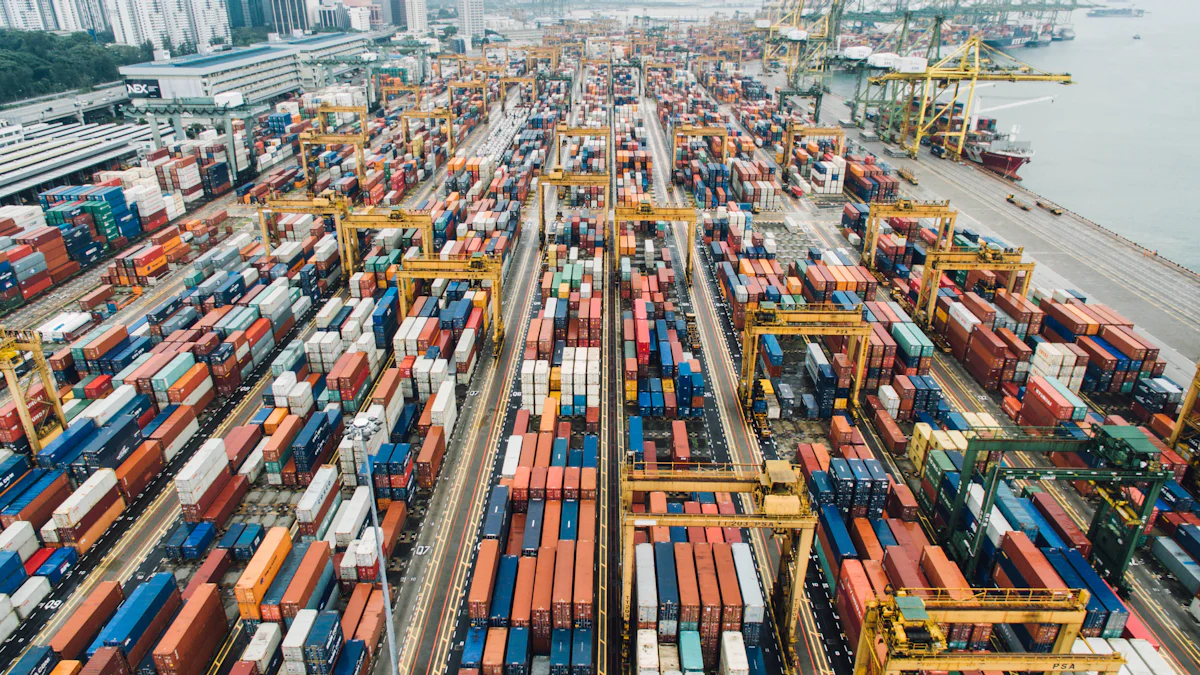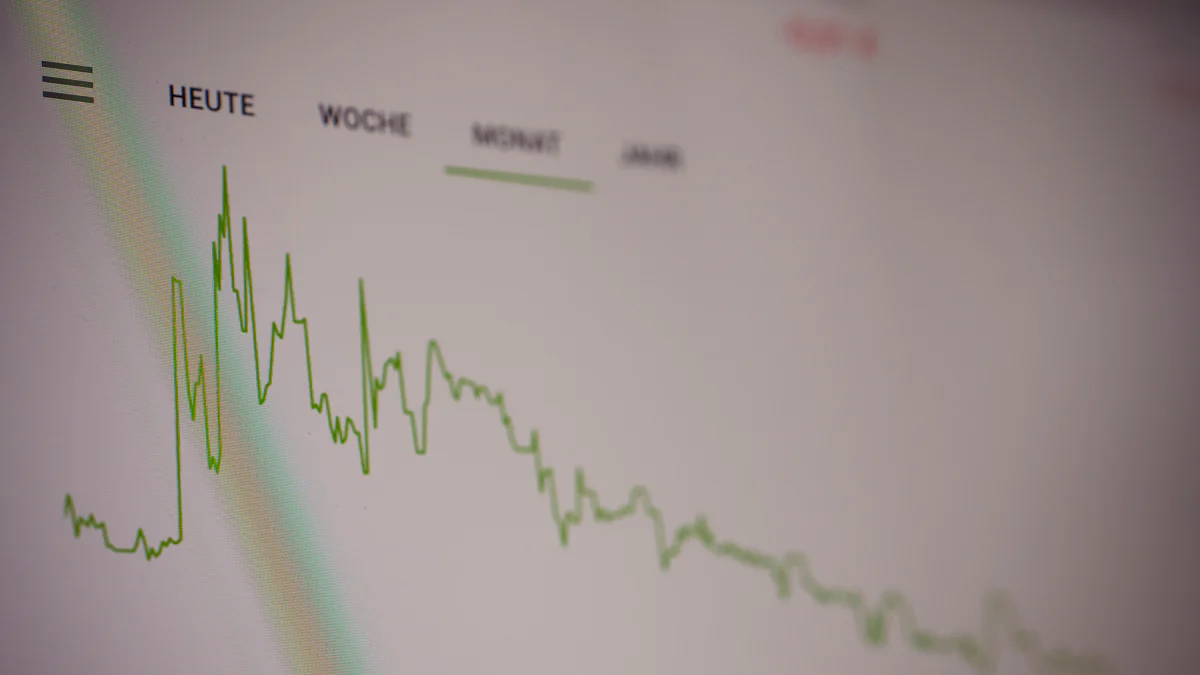Monthly Update on the Latest Automotive Supply Chain News

Staying updated with the latest automotive supply chain news is crucial for industry stakeholders. The automotive sector undergoes rapid changes and developments, driven by technological advancements and geopolitical shifts. Providing a Monthly Update with the most recent and relevant information ensures that industry professionals remain informed and prepared for emerging challenges and opportunities.
Monthly Update on Market Trends and Developments

Global Supply Chain Shifts
Impact of Geopolitical Events
Geopolitical events significantly influence the automotive supply chain. Tensions between manufacturing regions disrupt production schedules. Trade restrictions and tariffs increase costs for raw materials and components. Automakers must navigate these complexities to maintain operational efficiency.
Changes in Trade Policies
Trade policies directly affect the flow of goods in the automotive industry. New trade agreements open markets and reduce tariffs. Conversely, protectionist policies create barriers and increase costs. Companies need to stay informed about policy changes to adapt their strategies accordingly.
Technological Advancements
Automation and Robotics
Automation and robotics revolutionize automotive manufacturing. Robots perform repetitive tasks with high precision, reducing human error. Automation increases production speed and enhances quality control. Companies investing in these technologies gain a competitive edge.
AI and Machine Learning Applications
AI and machine learning optimize various aspects of the supply chain. Predictive analytics forecast demand and manage inventory levels. Machine learning algorithms improve logistics by identifying efficient routes. These technologies enhance decision-making and operational efficiency.
Sustainability Initiatives
Green Manufacturing Practices
Green manufacturing practices reduce environmental impact. Companies implement energy-efficient processes and utilize renewable energy sources. Waste reduction and recycling programs minimize resource consumption. These initiatives align with global sustainability goals and improve brand reputation.
Electric Vehicle Supply Chain
The electric vehicle (EV) supply chain experiences rapid growth. Automakers expand battery production facilities to meet increasing demand. Investments in charging infrastructure support the adoption of EVs. The shift towards electric mobility drives innovation in the supply chain.
Monthly Update on Key Industry Players and Movements

Major Automotive Manufacturers
New Partnerships and Collaborations
Automotive manufacturers have formed new partnerships to address supply chain challenges. Huawei has expanded its smart car partnership with Changan to include chip development. Stellantis has partnered with Foxconn to build new semiconductor chips. Ford has joined forces with GlobalFoundries to increase the supply of U.S.-made chips. Tesla has decided to pay for chips in advance to overcome shortages. Rivian has benefited from its partnership with VW, which has provided significant support.
Production and Sales Updates
Production and sales updates reveal mixed outcomes for major manufacturers. Ford announced a postponement of $12 billion in EV investment due to slowing demand and higher costs. The company also scaled back its F-150 Lightning production by approximately half. General Motors missed its EV manufacturing goals by half, facing persistent production problems. Quality and recall issues emerged for models such as the Chevy Blazer EV. Volvo leads the industry in steel and aluminum decarbonization, followed by Mercedes, Tesla, and Ford.
Suppliers and Distributors
Innovations in Supply Chain Management
Suppliers and distributors continue to innovate in supply chain management. Companies have adopted advanced technologies to enhance efficiency and reduce costs. Automation and robotics have become integral to modern supply chains. Predictive analytics and machine learning optimize inventory levels and logistics. These innovations help companies navigate complex supply chain landscapes.
Challenges and Solutions
The automotive supply chain faces several challenges, including geopolitical tensions and regulatory changes. Companies must adapt to fluctuating raw material prices and labor market trends. Cybersecurity threats have increased, prompting investments in protective measures. Automakers and suppliers focus on sustainability initiatives to meet global standards. Ethical sourcing and green manufacturing practices have gained importance. Addressing these challenges requires strategic planning and continuous innovation.
Monthly Update on Economic and Financial Insights
Market Performance and Forecasts
Stock Market Trends
The automotive sector has experienced fluctuations in stock market performance. Major automakers have seen mixed results due to varying production levels and sales figures. Companies like Tesla and Ford have faced challenges related to supply chain disruptions. However, investments in electric vehicles (EVs) have provided some stability. Analysts predict continued volatility as the industry adapts to new technologies and market demands.
Economic Indicators
Economic indicators provide insights into the automotive industry's health. Metrics such as vehicle sales, production rates, and consumer spending influence market performance. Recent data shows a decline in new-vehicle inventory volume, with a 26% drop compared to 2019. Despite this, automakers are increasing inventory levels after nearly two years of record lows. The labor market remains tight, impacting production capabilities. Monitoring these indicators helps stakeholders make informed decisions.
Investment and Funding News
Venture Capital and Startups
Venture capital continues to flow into the automotive sector, particularly towards startups focused on innovation. Companies developing autonomous driving technology and sustainable mobility solutions attract significant funding. For instance, startups working on battery recycling technologies have gained investor interest. These investments drive advancements and foster competition within the industry.
Mergers and Acquisitions
Mergers and acquisitions (M&A) activity remains robust in the automotive industry. Major players seek to strengthen their positions through strategic acquisitions. Stellantis' partnership with Foxconn exemplifies efforts to secure semiconductor supplies. Ford's collaboration with GlobalFoundries aims to boost U.S.-made chip production. Such M&A activities help companies navigate supply chain challenges and enhance technological capabilities.
The blog discussed significant updates and trends in the automotive supply chain. Key highlights included shifts in global supply chains, technological advancements, and sustainability initiatives. The blog emphasized the importance of staying informed in a rapidly evolving industry. Industry stakeholders must remain vigilant to navigate challenges and seize opportunities. Future updates will continue to cover essential developments, including semiconductor production and the shift toward electric vehicles. Staying updated ensures preparedness for emerging trends and market dynamics.
See Also
Maximizing Your Automotive Supply Chain's Potential
Expert Guidance for Navigating Automotive Supply Chain Challenges
Tomorrow's Logistics Revolution: The Impact of AI on Supply Chain
Revolutionizing Supply Chain with Robotics Technology Exploration
Exploring Essential Supply Chain Events: 5 Must-Attend Picks
